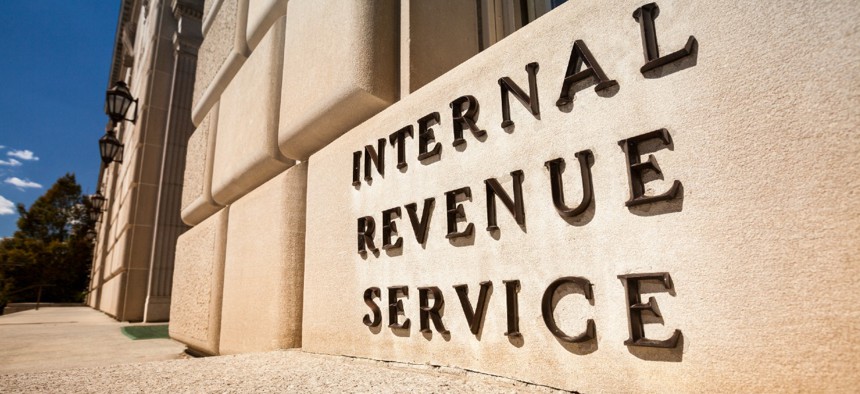More Than Two-Thirds of Americans Support a Surge in Staff and Funding at IRS

Pgiam / iStock.com
Biden has proposed additional spending at the tax agency, arguing it would help prevent wealthy Americans from dodging their bills.
More than two-thirds of U.S. voters support bolstering the Internal Revenue Service's staff to enable more enforcement of the nation’s tax laws, according to a new survey.
The key priority of President Biden to ensure high-income earners pay their full tax bills to help fund other areas of new spending won 68% approval in the University of Maryland poll. The survey explained the full proposal to respondents—including the current tax gap and that enforcement would focus on those earning more than $400,000—before asking them for their opinions. The surveyors highlighted that some attribute the growing total of taxes that go uncollected every year to “Congress reducing the IRS’ budget, which has caused the IRS to have less staff and resources to enforce tax laws.”
Respondents were presented with arguments in favor of Biden’s proposal—which calls for $8 billion per year in new IRS funding—and against it. The supportive argument suggested wealthy Americans have lobbied Congress “to cut funding for the IRS so they can get away with avoiding paying their taxes.” The argument against the proposal suggested IRS was overstating the tax gap and those who shortchange the agency were doing so accidentally because the tax code is too complicated. Instead of giving IRS more money, the argument went, Congress should simplify the tax system.
A slight majority found the line of reasoning against Biden's proposal convincing, though 77% of respondents said the same of the “pro” argument. Asked if they approved of the proposal, 46% of Republicans said they did, compared to 88% of Democrats and 65% of independents.
A bipartisan group of senators, working with the White House, originally included the boosted IRS funding and hiring as part of their $1 trillion infrastructure plan, but ultimately scrapped it from the measure after Republicans pushed back. Many conservative lawmakers said the proposal would lead to the IRS unfairly targeting certain Americans.
Biden requested $80 billion over the next decade for the tax agency, suggesting it would bring in $700 billion in revenue. Democrats are now looking to include the funding as part of a much larger package to further increase infrastructure spending and pass other Biden priorities. They can pass that measure without any Republican support through a process called reconciliation, though they cannot afford to lose support from a single Democratic senator.
The Biden administration and IRS leadership have called IRS funding critical to offset more than a decade of cuts or relatively flat spending at the agency. IRS has shed 17,000 enforcement workers over the last decade, disproportionately from highly specialized, senior examiners who typically focus on the wealthiest individuals and corporations. IRS Commissioner Charles Rettig has said boosted enforcement would focus on high net-worth individuals, large pass throughs, corporate compliance, employment tax field examinations and non-filers with virtual currency, among others. The hiring surge would also go toward customer service efforts, with the goal of improving the phone answering rate to 75% of calls. During the COVID-19 pandemic, that rate dropped to 7%.
The University of Maryland poll was conducted between July 29 and Aug. 31 and had a margin of error of plus-or-minus 1.9% and a sample size of 2,613 registered voters.






